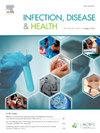感染预防与控制专业人员:压力、复原力、个性特征以及对其工作队伍和职业的看法。
IF 2
Q2 PUBLIC, ENVIRONMENTAL & OCCUPATIONAL HEALTH
引用次数: 0
摘要
背景:COVID-19 大流行给感染控制专业人员队伍带来了巨大压力,他们在各自组织内外都处于大流行应对工作的最前沿。为了支持感染控制专业人员并为未来的举措提供信息,进一步了解感染控制专业人员非常重要。本研究旨在确定澳大利亚和新西兰感染控制专业人员的压力和复原力水平、个性特征和工作意向:我们对澳大利亚和新西兰的感染控制专业人员进行了匿名、横断面在线调查。我们使用了经过验证的工具,即简短复原力工具、劳动力压力工具和大五人格测试,来评估压力水平、复原力和人格特质:356 名感染控制专业人员参与了调查,他们来自澳大利亚所有辖区和新西兰。平均压力得分为 4.28(标准差为 3.39),抗压能力得分为 3.34(标准差为 0.65)。较年轻的参与者和感染控制经验较少的参与者压力较大,抗压能力较低。个人性格特征因年龄、教育水平和资格认证状况而异。约五分之一的参与者表示,他们计划在未来三年内离开感染控制工作岗位:我们的研究是涉及澳大利亚和新西兰感染控制专业人员的最大规模的公开研究。研究结果突出表明,有必要采取指导、同伴支持和福利措施来支持这一行业。了解个性特征也有利于进一步加强沟通和人际关系。本文章由计算机程序翻译,如有差异,请以英文原文为准。
Infection prevention and control professionals: Stress, resilience, personality traits and views about their workforce and profession
Background
The COVID-19 pandemic placed considerable strain on the infection control professional workforce, who were at the forefront of pandemic response in their organisations and beyond. In order to support infection control professionals and inform future initiatives, it is important to further understand the infection control workforce. The objective of this study was to determine stress and resilience levels, personality traits and workforce intentions of infection control professionals in Australia and New Zealand.
Methods
We undertook an anonymous, cross-sectional online survey of infection control professionals in Australia and New Zealand. Validated tools, the brief resilience tool, workforce stressor tool and the Big Five personality test, were used to evaluate levels of stress, resilience and personality traits.
Results
Three hundred and fifty-six infection control professionals started the survey, with representation from all Australian jurisdictions and New Zealand. The mean stress score was 4.28 (SD 3.39) and 3.34 (SD 0.65) for resilience. Younger participants and those with less experience in infection control had higher levels of stress and lower levels of resilience. Individual personality traits vary by age, level of education and credentialing status. Approximately one-fifth of participants indicated that they planned to leave the IC workforce in the next three years.
Conclusions
Our study was the largest published study involving infection control professionals in Australia and New Zealand. Findings highlight the need for mentoring, peer support and wellbeing initiatives to support the profession. Understanding personality traits may also be beneficial for further enhancing communication and interpersonal relationships.
求助全文
通过发布文献求助,成功后即可免费获取论文全文。
去求助
来源期刊

Infection Disease & Health
PUBLIC, ENVIRONMENTAL & OCCUPATIONAL HEALTH-
CiteScore
5.70
自引率
5.70%
发文量
40
审稿时长
20 days
期刊介绍:
The journal aims to be a platform for the publication and dissemination of knowledge in the area of infection and disease causing infection in humans. The journal is quarterly and publishes research, reviews, concise communications, commentary and other articles concerned with infection and disease affecting the health of an individual, organisation or population. The original and important articles in the journal investigate, report or discuss infection prevention and control; clinical, social, epidemiological or public health aspects of infectious disease; policy and planning for the control of infections; zoonoses; and vaccination related to disease in human health. Infection, Disease & Health provides a platform for the publication and dissemination of original knowledge at the nexus of the areas infection, Disease and health in a One Health context. One Health recognizes that the health of people is connected to the health of animals and the environment. One Health encourages and advances the collaborative efforts of multiple disciplines-working locally, nationally, and globally-to achieve the best health for people, animals, and our environment. This approach is fundamental because 6 out of every 10 infectious diseases in humans are zoonotic, or spread from animals. We would be expected to report or discuss infection prevention and control; clinical, social, epidemiological or public health aspects of infectious disease; policy and planning for the control of infections; zoonosis; and vaccination related to disease in human health. The Journal seeks to bring together knowledge from all specialties involved in infection research and clinical practice, and present the best work in this ever-changing field. The audience of the journal includes researchers, clinicians, health workers and public policy professionals concerned with infection, disease and health.
 求助内容:
求助内容: 应助结果提醒方式:
应助结果提醒方式:


